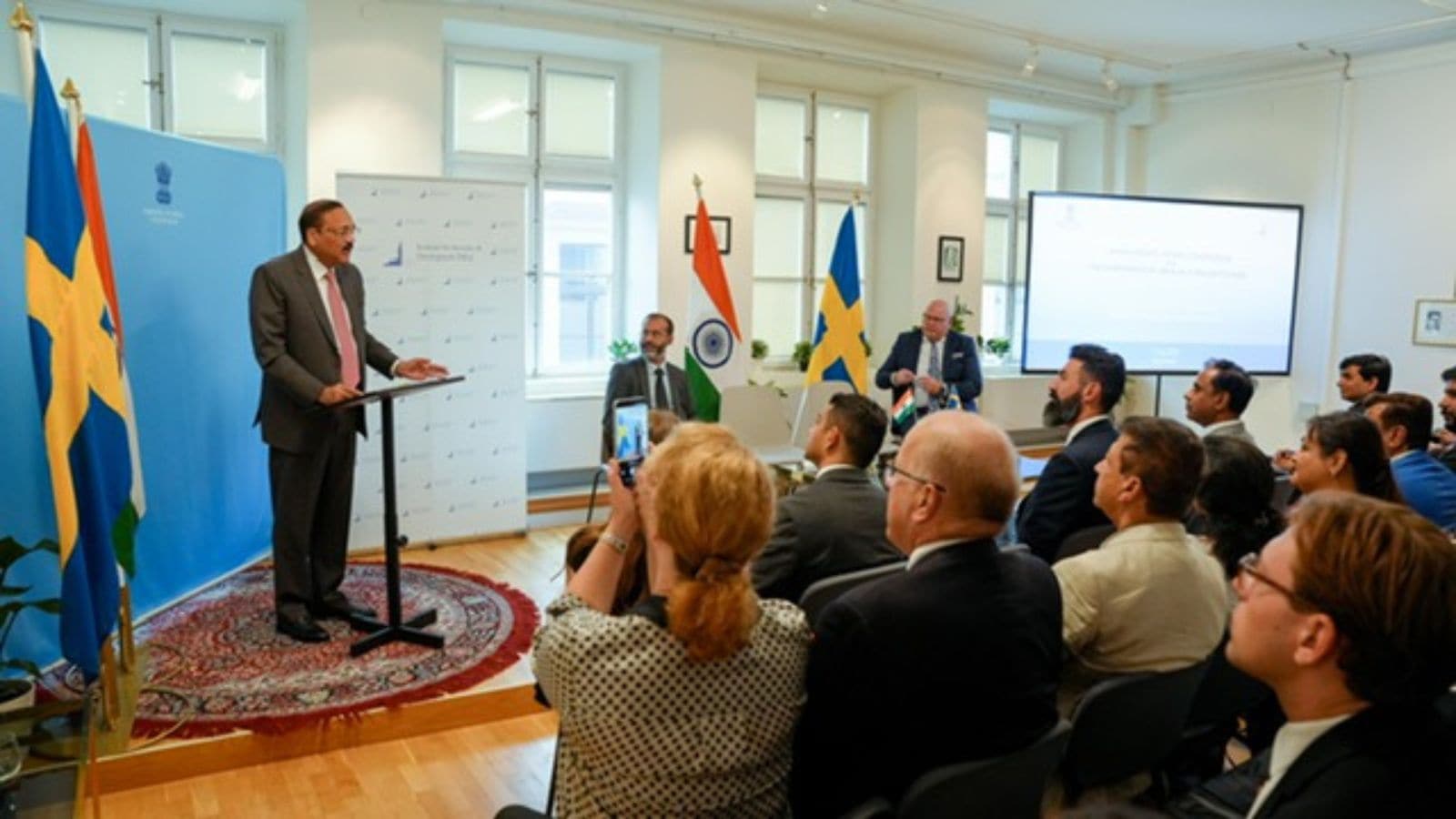In Sweden, Justice Surya Kant emphasises India’s commitment to human rights, says ‘vital to respect diversity of approaches’
Speaking at the Embassy of India in Swedish capital Stockholm, Justice Surya Kant highlighted the paradox of countries with strict immigration policies positioning themselves as "champions of human rights".
 Justice Surya Kant said that in ancient India, dharmic law was regarded as above all human authority. (Express photo)
Justice Surya Kant said that in ancient India, dharmic law was regarded as above all human authority. (Express photo)Underlining that India “has historically demonstrated a strong commitment to human rights”, Supreme Court judge Justice Surya Kant Monday said that “it is somewhat paradoxical when countries with some of the most rigid immigration policies—and a documented tendency to resort to excessive use of force, even in response to minor infractions—position themselves as the foremost champions of human rights”.
Speaking at the Embassy of India in Swedish capital Stockholm on the topic ‘Human rights, the Indian Constitution and India as a resilient power’, Justice Kant said, “Such critiques, when unaccompanied by self-reflection or contextual understanding, undermine the very values they claim to uphold.”
Pointing out that “every nation crafts its human rights framework and crisis responses in accordance with its legal traditions, socio-political realities, and cultural ethos”, he also said that “it is vital to recognise and respect this diversity of approaches” while engaging in global conversations on human rights.
Justice Kant said, “Meaningful progress lies not in uniformity, but in mutual understanding, where each nation is afforded the dignity of its own path, shaped by both heritage and contemporary responsibility.”
He said India “has long been acquainted with the concept of human rights, with its principles deeply rooted in the teachings ingrained in our ancient texts, influencing our lives across centuries and epochs.”
Citing a verse from the Rig Veda, he said it “underscores a profound ethical ideal: that all human beings are equal, bound by a shared humanity, and ought to strive collectively for mutual upliftment and the common good”.
Justice Kant said that in ancient India, dharmic law was regarded as above all human authority, which nobody, or no individual, regardless of their supremacy, could abolish.
He said, “The subsequent period of Islamic rule in India introduced a complex set of dynamics into the human rights discourse. The early phase, marked by invasions and conquests, was accompanied by widespread discriminatory practices and rights violations. However, in the later stages—particularly during the reigns of emperors Akbar and Jahangir—we begin to see the emergence of more progressive and nuanced governance.”
Justice Kant added that “it was perhaps during the British colonial period that India’s human rights landscape descended into one of its darkest chapters”.
The senior judge said that “the colonial administration was marked by systematic economic exploitation, cultural marginalisation, and political repression” and added that “there exist well-documented instances of grave human rights violations during” the period “such as the Jallianwala Bagh massacre…the oppressive system of indigo cultivation in Champaran…” and “the Bengal Famine of 1770”.
“Given these atrocities, it comes as no surprise that human rights were routinely denied to Indians, who were subjected to institutionalised discrimination and treated as inherently inferior. A range of laws and administrative measures were enacted not to uphold justice, but to serve imperial interests. In doing so, the British dismantled and disregarded India’s indigenous legal and political traditions, replacing them with frameworks that effectively excluded the majority of Indians from meaningful participation in social, political, and economic life,” he added.
Speaking of human rights in the Indian context, he said the country’s judiciary “has played a pivotal role” in interpreting and expanding the scope of fundamental rights, thereby transforming constitutional guarantees into a dynamic and evolving human rights framework.
“Through progressive jurisprudence, the courts have consistently broadened the ambit of these rights to encompass a wider range of protections that align with globally recognised human rights standards,” he said.
Pointing to the role of institutions like the National Human Rights Commission and State Human Rights Commissions, Justice Kant said, “In practice… function as vital conduits for bringing instances of abuse or administrative apathy to the fore, particularly where traditional avenues of redress may be inaccessible or delayed.”







